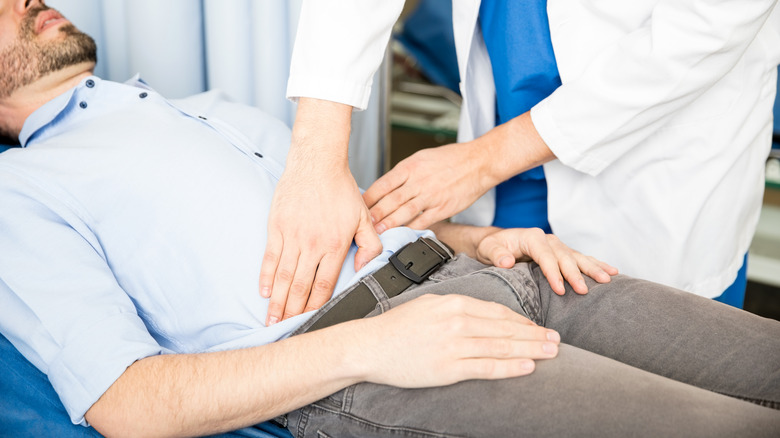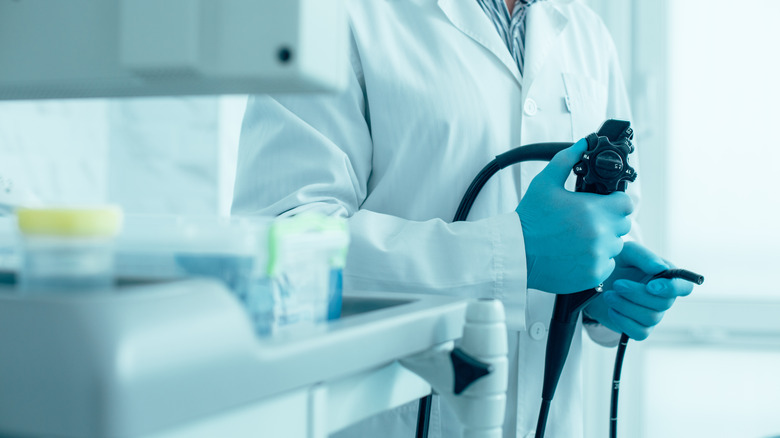What To Know Before Becoming A Stool Donor
According to a review article published in the Journal of the Formosan Medical Association in 2019, fecal microbiota transplantation (FMT) is a medical procedure that shows promise in treating a variety of health conditions. Although transferring fecal material from a healthy donor to a patient may seem unusual, the potential benefits of restoring a balanced and diverse gut microbiome cannot be ignored. FMT has shown remarkable success in providing relief and healing to those struggling with conditions such as recurrent Clostridium difficile infections or certain gastrointestinal disorders.
Stool donors play a critical role in the success of FMT procedures by providing valuable microbiota, potentially relieving those suffering from chronic illnesses. By providing valuable microbiota, they can potentially alleviate those suffering from chronic illnesses. Becoming a stool donor is an act of selflessness and generosity that can make a significant difference in the lives of others. However, it's important to note that the process of becoming a stool donor is complex and requires careful consideration. Being well-informed and understanding the importance of following strict medical protocols and maintaining a healthy lifestyle ensures the safety and well-being of both donors and recipients.
Multiple potential benefits of FMT
The gut microbiota, consisting of millions of microorganisms, plays a vital role in supporting digestion, strengthening our immune system, and influencing our brain health (per Healthline). According to the Cleveland Clinic, FMT is a medical procedure that restores a patient's gut microbiome. FMT involves transferring fecal material from a healthy donor to a patient. This balances the gut microbiota, suppresses harmful pathogens, and promotes a healthy gut environment.
A systematic review and meta-analysis published in PLOS One in 2020 shows that FMT can help manage the symptoms of Crohn's disease and ulcerative colitis by reducing inflammation in the gut. It may also help alleviate symptoms of irritable bowel syndrome, such as abdominal pain and irregular bowel movements, although more research is needed. Additionally, a 2020 study published in Frontiers in Microbiology concludes that FMT could be useful in addressing metabolic conditions like obesity and type 2 diabetes by influencing how the body processes and stores energy. These indications highlight the versatility of FMT as a therapeutic option. Ongoing research is exploring its potential applications.
The careful process of becoming a stool donor
Becoming a stool donor requires a careful process that ensures the donor is healthy and the recipient is safe. The screening process has several steps, each with a specific purpose. According to a study published in Microbial Cell Factories in 2021, donors must be aged between 18 and 50, have a normal BMI, and be in good general health. They should avoid smoking and drug use, which can affect the quality of the sample and pose risks to recipients.
Donors for Fecal Microbiota Transplantation (FMT) should also be free of certain medical conditions, such as HIV, hepatitis, and intestinal parasite infections. They should also avoid taking antibiotics for six months before donating to maintain the gut microbiota balance (per Johns Hopkins Medicine). Blood and stool samples are collected and tested to identify any infections, diseases, or issues. The stool sample is examined to ensure the donor's gut bacteria are healthy and can restore a healthy balance in the recipient.
Other factors to consider before becoming a stool donor
If you're interested in becoming a stool donor, it's important to know that it's not just about passing medical tests. You may also need to make some lifestyle and dietary changes to make sure the donation process is safe and effective for you and the recipient. An international survey published in Frontiers in Nutrition in 2021 showed that diet is an important consideration for stool donors that can affect the outcomes of FMT. For instance, the Centre for Digestive Diseases recommends that donors eat fiber-rich foods like fruits, veggies, and whole grains and avoid processed meats, raw fish, and shellfish.
Another factor to consider is the cost. The American Gastroenterological Association states that not all insurance providers cover stool testing, which can cost more than $500. Be sure to check with your insurance to avoid an unexpected bill.
Stool donation is a big decision that requires careful consideration. You'll need to meet age and health requirements and follow dietary and lifestyle guidelines. However, by donating, you can make a selfless contribution that can make a difference in the lives of those suffering from debilitating conditions. Stool donors play a crucial role in advancing medical treatments and changing lives.




